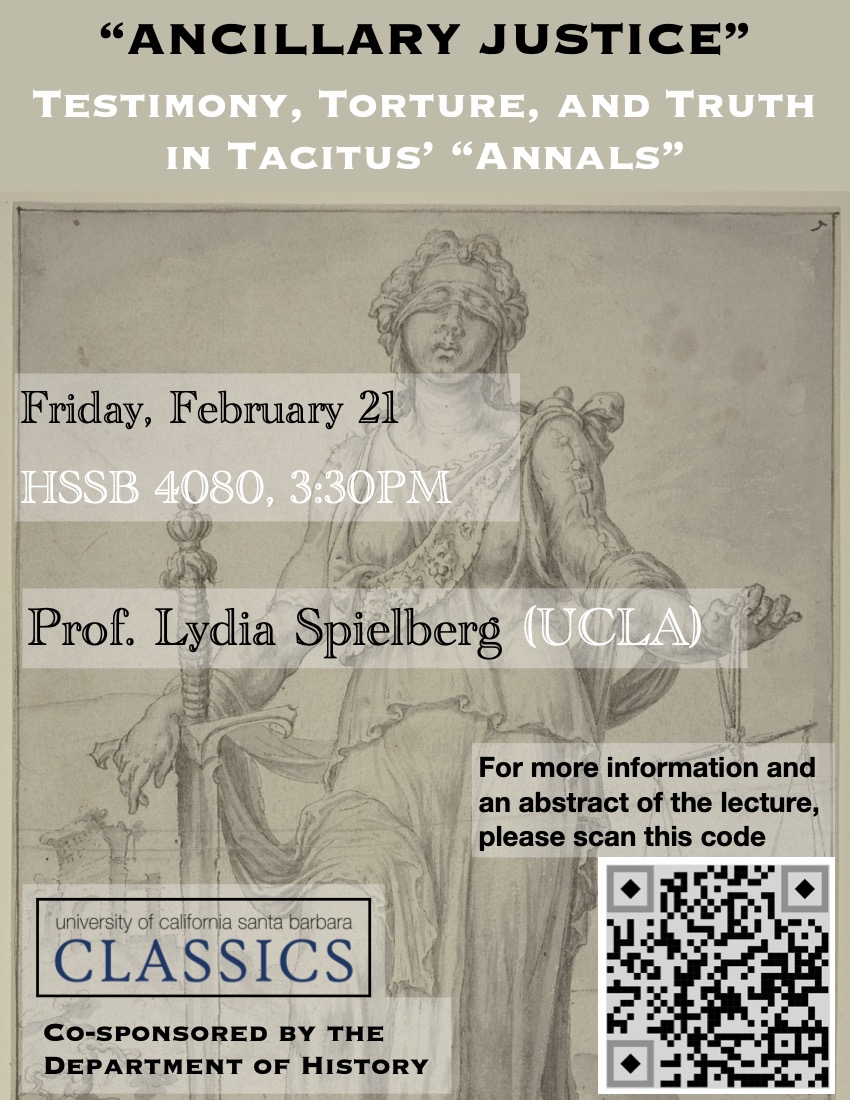In this lecture, Prof. Spielberg will examine the epistemological and historiographical consequences of Roman chattel slavery through a close reading of several episodes in Tacitus’ Annals where the historian reveals that his knowledge turns out to depend on the testimony of enslaved or formerly enslaved individuals – testimony often extracted under torture, on the assumption that only force majeure could break an individual’s fear of and consequent obedience to the interests of their enslaver. Tacitus uses contemporary legal discourse and rhetorical topoi to differentiate torture variously as an unproblematic method for extracting the truth from “disloyal” or “wicked” slaves (Ann. 4.11.2), and as an insidious tool of accusers that the “loyal slave” heroically resists (e.g. A. 4.29.3, 14.60.3). While other types of sources are “trustworthy” because they have been found to adhere to the truth, in the slaveholding ideology that the Annals shares, an enslaved person’s testimony has value not for being true, but for demonstrating loyalty to the orders and interests of the enslaver.
The efficacy of torture as a means to prove the truth in the Annals, Prof. Spielberg will show, has a moral slant not only according to whether the torturer conducts a legitimate interrogation according to contemporary “best practices”, but also according to the “worthiness” of the victim, in a bit of slaveholder fantasy that attempts to align the interests of the “good master” and the “good slave.” Yet, truth remains the historiographical criterion for a source, and Tacitus often introduces the testimony of enslaved and freed-persons as a secure source of “the facts” to be opposed to wild rumors and inventions. The selectivity of Tacitus’ presentation suggests some of the fictions that Roman slaveholders told themselves and tried to impose on those they dominated –including the enslaved secretaries, copyists, and readers whose labor produced and disseminated books such as the Annals.







